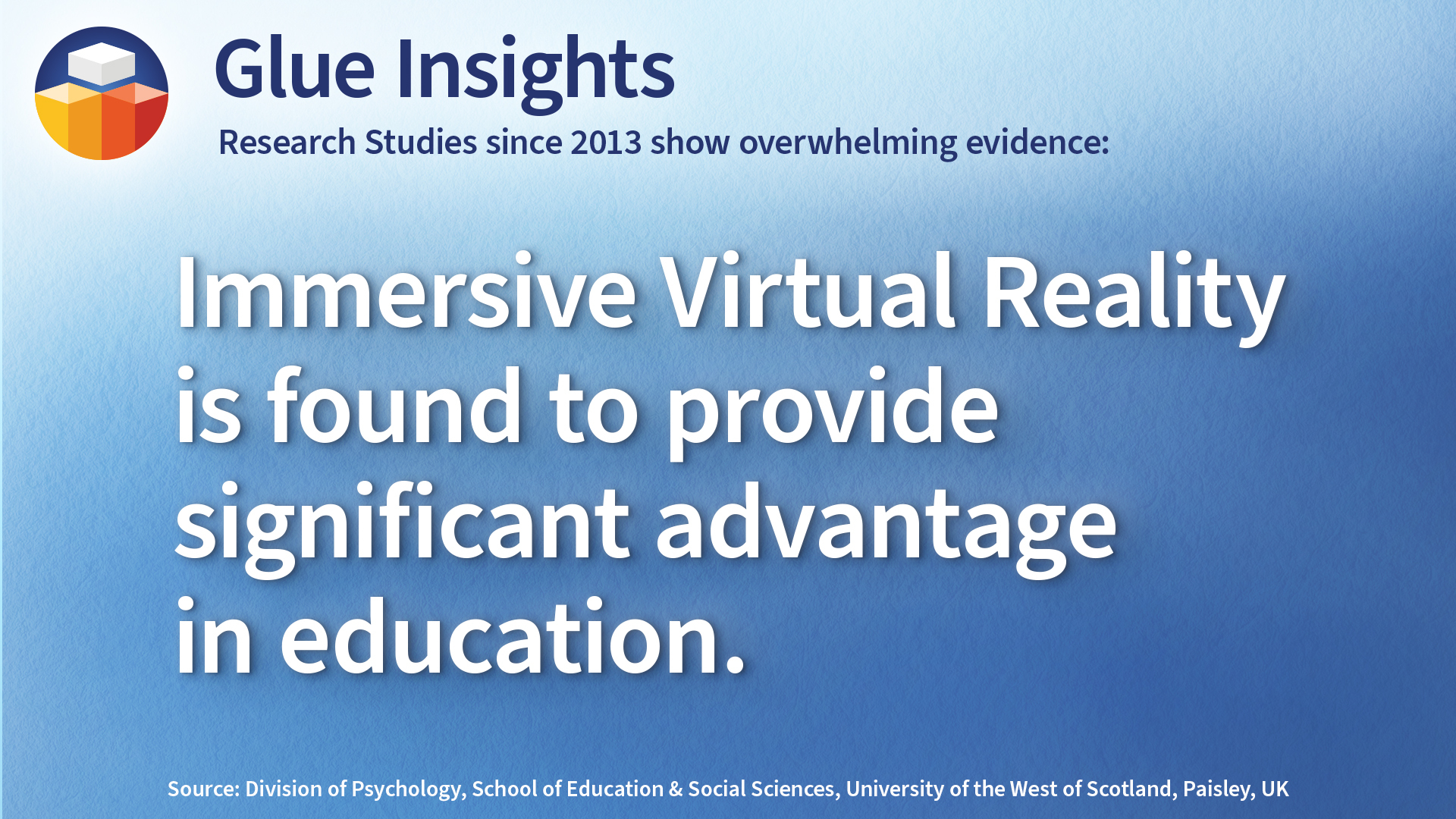Immersive virtual reality provides a significant advantage in education. This is concluded in a systematic literature review study by Hamilton, D., McKechnie, J., Edgerton and E., Wilson C., which examined 29 research papers in the field of VR application in education since 2013.
In our previous posts, we’ve been talking about the benefits of virtual reality for education and training purposes, and it is always nice to see that our reasoning is confirmed by different scientific studies. The educational benefits of VR can be easily implemented in the corporate world for training, workshops and off-site events.
Let’s have a look at why VR is beneficial for education & training:
1. Immersive technology = A high degree of visualisation. 3D virtual environments provide a high level of visualisation which allows to easily illustrate concepts and achieve higher learning outcomes.
2. Simulation trains practical skills. Trainees can repeatedly practise demanding tasks in a safe environment, which often can’t even be trained in the real world. This is particularly useful in the healthcare industry.
3. Experimental learning. VR allows to gain cognitive skills during experimental learning sessions where people learn by applying logic and exploring outcomes. These skills would not be possible to acquire with other traditional education tools.
Virtual reality is a useful tool in education due to highly engaging, immersive experiences that stick to users’ minds. These benefits can significantly improve the learning outcomes and provide a cost-efficient solution for the company’s training, workshops and other educational activities.


